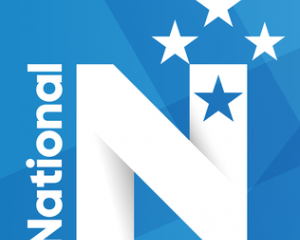
New mental health initiatives include programmes for preschoolers and "e-therapy" for young people and prisoners.
Health Minister Dr Jonathan Coleman said some of the 17 new initiatives would be in place early next year, with a number aiming to help build resilience in children as young as 3 and 4.
The schools programme will include the development of a universal screening approach to identify mental health issues or those that left unchecked could manifest as mental health issues later on.
Dr Coleman said the overall investment would help put care in New Zealand "ahead of the curve", and evidence showed building resilience in children would help decrease mental illness further down the track.

"All governments have to start doing things differently."
Broadly, the $100 million package would cover four groups: a school-based package, primary and community mental health care, distance and e-therapy, and initiatives to build an "evidence based approach" in the New Zealand context.
The latter will include interviews with "hard-to-find" groups including the homeless and transient populations.
Prime Minister Bill English said a wider range of interventions were needed.
"There isn't one single solution that can meet all the needs in the area of mental health. But I'm confident that the range of measures here...represent a significant broadening of our approach to mental health, and a significant step forward."
The $100m social investment fund was previously announced as part of Budget 2017. Labour has criticised the Government for not announcing the initiatives at the time funding was confirmed, saying it showed the government's mental health plan was a rush job.
The initiatives include:
- A package of pilot programmes to improve e-therapy options for young people. Online therapy - also known as e-therapy or distance therapy - sees therapists use mediums such as apps and video and voice messaging to deliver counselling and support to patients.
- E-therapy will also be provided to prisoners under the age of 25.
- A package of telehealth mental health programmes for young people. In a broad sense, telehealth is the use of communication technology to deliver health care from a distance.
- New programmes to ensure follow-up support for people who attempt suicide, and to identify people at risk of suicide when they interact with police, ambulance services and emergency departments.
- The expansion of primary and community mental health and addiction care, including for people whose needs aren't easily managed by GPs but who don't meet the threshold for specialist services.
- Support for people experiencing or at risk of acute mental health crisis to find rental accommodation and keep it.
- A new system to operate in three places that would see staff from police, ambulance and mental health services deployed together when a 111 call is made requiring a mental health response.
- A pilot to help develop "internal self-regulatory skills" for 3 and 4-year-olds.
- Develop a universal screening approach to identify mental health issues in school students, or issues that left unchecked could manifest as mental health issues later on.
New Zealand ranks second worst in the developed world for suicide in those aged 25 and under. It is the worst in the world for suicide in those aged 15 to 19. The suicide rates have remained largely unchanged for two decades.
Labour has released policy to spend $43m in a two-year trial in areas of high demand for mental health services, such as Christchurch, ensuring all GP practices have dedicated mental health teams and all appointments related to mental health issues are free.
Dr Coleman was recently targeted by lobby group ActionStation, which put up billboards in his Northcote electorate, challenging his decision to not launch a mental health inquiry.
The billboards look very similar to the minister's campaign billboards with a picture of Coleman and accompanied by the words "77% of Kiwis want a mental health inquiry (But not me) - Dr Jonathan Coleman, Minister of Health".








